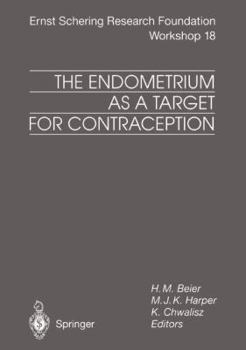The Endometrium as a Target for Contraception
Select Format
Select Condition 
Book Overview
Progesterone, the hormone "pro gestationem", plays a pivotal role in mammalian reproduction during almost all phases of the menstrual cyc1e and all stages of pregnancy. It is involved in the control of ovula- tion, prepares the endometrium for implantation, and, in later stages of pregnancy, is responsible for its maintenance by suppressing uterine contractility. The sudden withdrawal of progesterone action at the end of the nonfertile cycle leads to the constriction of spiral arteries and, in . turn, to menstruation in human beings and non human primates. The decrease in serum progesterone concentrations or its functional with- drawal in the myometrium and decidua are the most important events during parturition in various mammals. In the uterus, progesterone controls the growth and differentiation of endometrial and myometrial cells and regulates a variety of cell functions directly by either stimulating or inhibiting structural and functional proteins, but also indirectly by functionally opposing estra- diol action. In the nonpregnant uterus, there are different progesterone effects on uterine cell proliferation which vary among species. In the fertile cyc1e, progesterone regulates in synergism with estradiol the transport of the fertilized eggs and the c1eavage stage embryos through the oviduct and induces the secretory changes in the endometrium re- quired for implantation. During the period between ovulation and im- plantation, remarkable morphological and biochemical changes in the lumenal and glandular epithelial cells take pi ace under the influence of rising progesterone levels in the human and primate endometrium.
Format:Paperback
Language:English
ISBN:3662103257
ISBN13:9783662103258
Release Date:October 2013
Publisher:Springer
Length:284 Pages
Weight:0.80 lbs.
Dimensions:0.6" x 5.8" x 8.3"
Customer Reviews
0 rating





